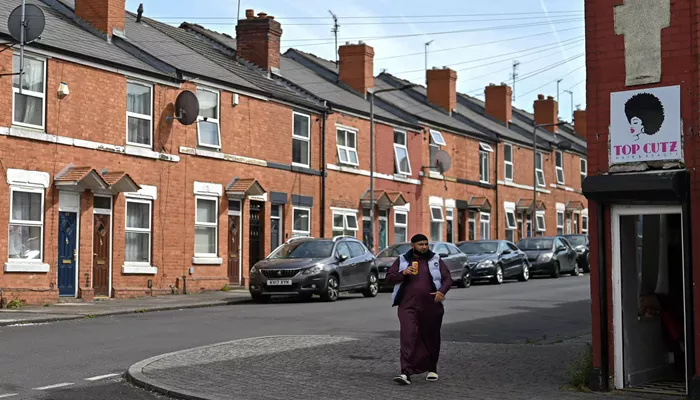Rotherham Residents Reflect on the Riots: Anger, Immigration, and Community Tensions.
The riots that shook Rotherham, a usually peaceful town, have left residents both terrified and bewildered. Clive Wingate, a local pensioner, described the scene at the Holiday Inn Express, now infamous after the unrest. “It was terrifying,” Wingate told AFP. “When they were lighting the bins to push into the building, where there were people inside, what were their intentions?” he questioned, reflecting the fear many felt as the violence unfolded.
The events in Rotherham were some of the most intense during the recent riots that spread across England and Northern Ireland. Hundreds of men, some wrapped in the English flag, gathered outside the hotel, chanting “kick them out” as police struggled to control the situation amidst a barrage of bricks and burning objects.
These riots, the worst seen in the country since 2011, began after a tragic knife attack on July 29 that claimed the lives of three girls during a dance class in Southport, another town in northern England. False rumors on social media that the attacker was a Muslim asylum seeker quickly fueled anti-immigration riots, despite police clarifying the misinformation. The unrest persisted for over a week, leading to more than 1,000 arrests nationwide.
In Rotherham, the aftermath of the violence is still visible, with signs of fire damage and boarded-up windows serving as grim reminders. The usually tranquil neighborhood, several kilometers from the town center, was not accustomed to such turmoil. Residents noted that the asylum seekers housed in the area, while their applications were processed, had not been a significant issue before the riots.
Charlotte Bedford, a 34-year-old local, expressed her frustration with the rioters, calling them “morons” who “deserve jail.” She emphasized the importance of peaceful protest, contrasting it with the destructive actions taken during the riots.
Several individuals involved in the riots have already received heavy sentences, including a 19-year-old sentenced to three years in prison for throwing bricks at police officers and a 60-year-old man who was sentenced to two years and eight months for assaulting an officer.
Phil Fletcher, a 65-year-old former property maintenance worker, criticized the violence but was not surprised by the riots. He highlighted the widespread discontent with immigration, stating, “There are millions of people fed up with immigration. It’s not our country anymore.” Fletcher, who supported the anti-immigration Reform UK party in the recent general election, reflected a sentiment shared by others in the community.
Nearby, a woman pointed to the number of migrants arriving in England this year, stating, “18,000 arrived since the beginning of the year. That’s too many. Immigration has to be the priority for this government.” These views underscore the deepening concerns over immigration, which Brexit was supposed to address by giving the UK control over its borders. However, both legal and irregular immigration have continued to reach record levels.
Natalie Jackson, a 28-year-old teaching assistant, voiced her concerns about the country’s ability to cope with the growing population, saying, “We are overpopulated. We can’t even get a doctor’s appointment anymore.” Caroline Roberts, a 66-year-old seamstress, added that many feel ignored when raising concerns about immigration. “Nobody is listening to people that are complaining. If you say anything, you are called a racist. It’s making people very angry,” she said, noting the perceived imbalance in support between migrants and local children.
Rotherham, a town of 265,000, has experienced significant challenges over the years, particularly following the closure of local steelworks and mines. The town’s reputation was further marred by a notorious child sexual exploitation scandal between 1997 and 2013. The scandal involved gangs of men, primarily of Pakistani heritage, who abused around 1,400 girls from disadvantaged backgrounds. The official reports on the scandal criticized authorities for failing to address the abuse, partly due to concerns about triggering allegations of racism. This has further eroded trust in immigration and local institutions.
Riaz Ayaaz, a 29-year-old Muslim born in Rotherham, reflected on the lasting impact of the abuse scandal, noting that it had heightened tensions in the town. He shared that his mosque had advised worshippers to remain calm and avoid reacting to provocations, urging them to trust the police. Ayaaz believed that the recent riots were partly fueled by individuals using the tragic deaths of the three girls in Southport as an excuse to express their broader frustrations.
For Ayaaz, the focus should be on addressing the underlying issues, particularly economic challenges, which he believes impact everything else. As Rotherham continues to grapple with the aftermath of the riots, the community’s divisions over immigration and trust in institutions remain deeply entrenched.


